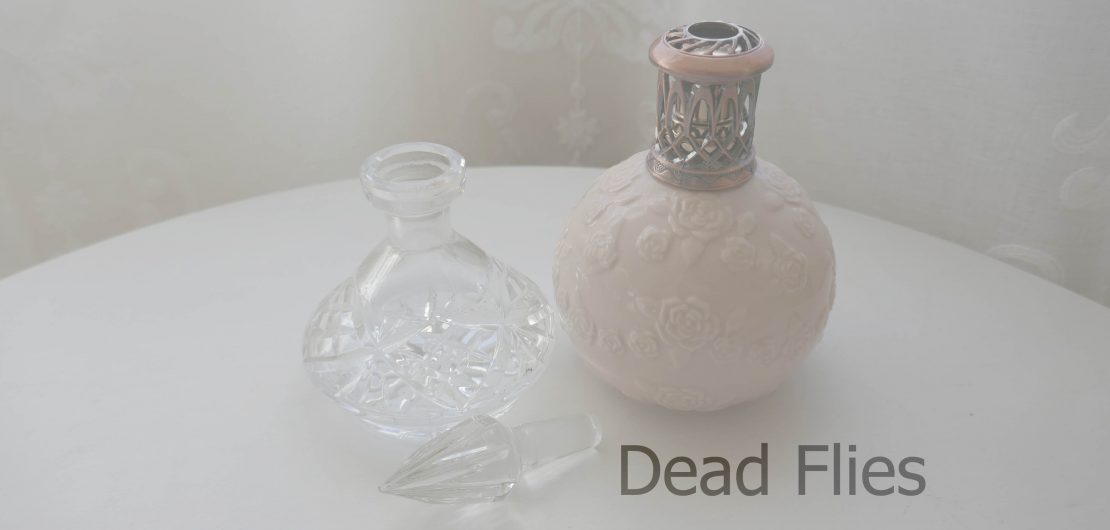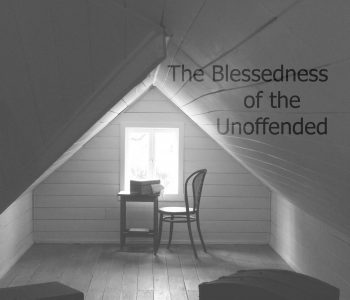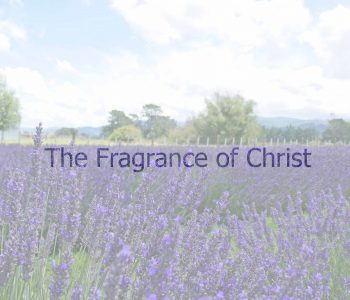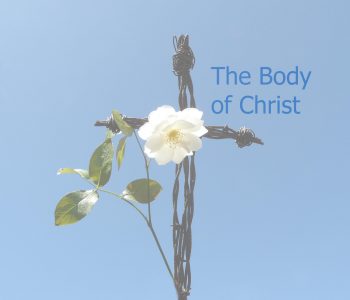 Other Authors
Other Authors
Dead Flies
“As dead flies cause even a bottle of perfume to stink, so a little foolishness spoils great wisdom and honour.” (Ecclesiastes 10:1)
Solomon’s book of Ecclesiastes is full of worldly wisdom, always helpful and sometimes very penetrating. But we remember that its writer was a man who received special wisdom from God, so we must regard this verse not merely as a pungent comment on human life, but as an expression of a divine spiritual truth.
The picture is a simple one. The perfumer, or apothecary, gathering together his precious oil and his various costly ingredients, weighing and measuring them and skillfully blending them together, is able to produce something delightfully refreshing and fragrant. In a moment of unwatchfulness, however, he allows one or two flies to kill themselves by getting mixed up in the confection. Being of a particularly unsavoury species, although they are quite small, these flies introduce a corrupting influence which takes away all the value of this attractive scent and makes the ointment to be so unpleasant as to be objectionable.
The moral comment is that any amount of wisdom and honour can be marred by a little foolishness. Indeed the more wisdom and honour there is, the more refined and costly the scent, the more damage is done by even a little folly. The spiritual commentary is this: there is an ointment being compounded by the great divine Apothecary; the whole Bible is filled with references to this fragrance and its meaning. In the early wilderness days, in the instructions concerning the Tabernacle, men were commanded by God to produce an anointing oil of unique fragrance, with a sweetness that none must try to imitate, which was to represent the ineffable fragrance of our Saviour. Right through the Bible this matter of sweet scent is brought before us as a reminder of the beauty of Christ’s character. The very next book to Ecclesiastes is Solomon’s Song of Songs, which speaks frequently of ointments, and opens with this testimony concerning the Lord: “Because of the fragrance of Your good ointments, Your name is ointment poured forth” (S. of S. 1:3). The sweet ointment which the Father has prepared is the beautiful character of His Son Jesus Christ.
In the Gospels we are told of the feast which was made for Jesus after the raising again of Lazarus from the dead, and concerning the costly ointment of spikenard which Mary there offered it is said that “the house was filled with the fragrance” (John 12:3). This was symbolic of Christ Himself, and in the epistles we find the same thought transferred to His people, for the apostle was able to say: “We are a sweet savour of Christ unto God”, who makes that fragrance known through us “in every place” (2 Corinthians 2:14-15). This is a beautiful thought and it should be a great encouragement to us, as we find ourselves in the hands of the great Perfumer. We are not expected to produce the fragrance by our own efforts; indeed according to the Old Testament any attempt at mere imitation will only result in death. It is vain to try to copy Christlikeness; we cannot produce it by any human effort. We are assured, though, that if we truly belong to Christ and follow Him, if salvation is a vital experience, then Christ is in us and the spiritual ointment is present. The sweetness and fragrance are received when Christ is received, and it is His scent and owes nothing to our natural effects. In all humility the apostle was able to declare that we are a sweet savour of Christ.
Alas! the most skillful perfumer with his most costly ingredients can find his work hindered and thwarted because of the presence of “dead flies”. Flies have a way of seeming to come from nowhere; they are so quick that they are often present when least expected. It may seem that such small creatures cannot have much effect on a large preparation of ointment, but clearly they can, and in the spiritual realm it is certain that just a little element of corruption can spoil the fragrance, displacing it by what is unsavoury.
The margin informs us that the phrase “dead flies” is taken from the Hebrew “flies of death”, and an interesting feature of the grammatical construction, so I am told, is that the verb is in the singular. It does not need a swarm of such flies to do the damage – “itcauses” the trouble. If there is only one, this is enough to produce the repulsive smell.
Here, then, is a practical lesson from one of the most practical of the Bible books. It is as though the Lord says: “I have committed to your life, as a believer, the most beautiful fragrance. There is no need for you to be yearning and planning, praying and studying, in an effort to produce it. It is not man-made at all. I have made it and I give it freely to you. Christ is in you and you are therefore a sweet savour of Christ to Me. Beware, then, of the ‘flies of death’, elements of corruption which can subtly spoil this gracious purpose of Mine in your lives.”
Each of us may ask ourselves just what might be the dead flies which mar the fragrance of our testimony. Speaking generally, everything corrupt can be included under this head of “flies”; anything of sin, however small, can spoil the delicacy of our fellowship with God. In our world corruption flies around us all the time, but what we have to watch is the entry of this intrusion into the purity of our spiritual experience. What are the most common faults which threaten the fragrance of Christ in us? Can we single out a few of our most common dangers?
1. Self Importance
I suggest that we begin with the dead fly of self-importance. Just a little conceit on our part and the fragrance somehow disappears, though nobody knows just why this has happened. What should be so attractive becomes faintly distasteful and all because of the intrusion of Self. We can easily explain away this fault, for self-importance can masquerade under pious descriptions of “my ministry” or “my responsibilities” or other expressions which act as a cloak to our pride and justify us in our attitude. It is not the name that matters, though, but the dead fly, and whatever pious name we give to self-importance, it still makes the ointment of grace to have a bad smell.
Self-importance manifests itself in various and sometimes in apparently opposite ways. You can be determined to have prominence or you can be hurt because you are not taken notice of. I think of two men who were unexpectedly called to the throne of Israel. The first, Saul, began with an appearance of humility while the other, David, proved truly humble. In both cases they could not be found when they were first called. Saul was deliberately hiding, so that when he was brought forward to be acclaimed king he had about him an air of reluctance which subsequent history proved to be unreal. David, for his part, was simply caring for the sheep and was overlooked by his father in this matter of the selection of a king. But the Lord’s eye was upon him and Samuel’s enquiries eventually discovered him. He too had to be sought out, and what a difference there proved to be between him and Saul. David was not self-conscious at all. He neither came forward nor did he hide; he just gave himself to the humble work of a shepherd. Self-importance may be shown by seeking prominence or by hiding from it in order to attract more attention. David did neither. He just forgot himself as he attended to his task of caring for his father’s sheep. And what a fragrance there was about the life of David from those early days and right through to the end!
Every preacher knows what it is to long to convey something of the fragrance of Christ through his ministry, and most of us have had times when this has all been spoiled by some “fly of death”, perhaps the strength of one’s own personal opinion or the desire to be clever rather than gracious. The fault was a small one, hardly meriting the charge of being a fault, and it may be that there was no very bad odour of death on the occasion. But even the small flies can rob our ministry of its fragrance, when something of the man obscures what should have been of the Lord.
2. A Critical Spirit
Another “fly” which can rob life of its sweetness is the spirit of criticism. This can act as just a small element of corruption which robs the atmosphere of what should be delicate fragrance. I do not here refer to the need for discernment. It is important for us to be faithful in discernment of right and wrong, both in the realm of the family and in our personal relationships. Fellowship calls for such faithfulness. This is right. So easily, however, a little unkindness or destructive criticism comes in, like a dead fly, and if it does no harm to the one concerned, it sours our own inner life.
I think again of Saul the king, and of how Samuel was forced to be very faithful in saying some hard things to him in the Lord’s name. Having done this, though, the prophet went home and gave himself up to heart-broken prayer for the erring Saul. His behaviour shows us how it is possible to be faithful in discernment without the defiling influence of unkind criticism. Then there was another prophet, Jeremiah, who was commanded by God to speak to the people in the strongest terms, but whose prophecies are interspersed with references to his secret sorrows and prayers over them. I am afraid that few of us can measure up to his example of self-sacrificing frankness.
It frequently happens that what could have been a lovely atmosphere of fellowship in the fragrance of Christ can be spoiled by a little thoughtless criticism. So perverse are our hearts that, even in the midst of divine mercies, we tend to adopt a superior attitude to others, blaming them because they do not appear to have the favours which God is showing us. The Lord blesses us. We have the great privilege of helping in the work of the salvation of sinners. This provokes much praise to Him, but before we know what is happening, we look round and blame others for not having similar results. This is a dead fly, a little folly, but it chases away the fragrance which should always be present where grace abounds. The Lord wonderfully answers our prayers in providing for our needs, but if we are not careful we begin to look down on others whose experience is less sensational, as though there were some merit in us which produced the happy results. So quickly do the flies of criticism pollute what should be the delicate fragrance of pure praise to God. If it is true that the Lord finds a pleasant scent where brethren “dwell together in unity” (Psalm 133:1), then how sadly He is deprived of that delight when they despise or denigrate one another, as alas, they not infrequently do.
3. Impatience
We imagine that the fragrance of the holy ointment was meant to convey a hint of the lovely sweetness of the atmosphere of heaven. A main feature of that atmosphere is surely divine peace. Quiet serenity and delicate perfume go well together. Christ carried this about with Him wherever He went. We are told that He is the same now and always will be the same as He was when here upon earth (Hebrews 13:8) which means that even when He was here among the unsavoury conditions of the world He carried with Him the beautiful scent of a serene spirit. One “dead fly” of impatience would have spoiled that loveliness, but none was ever found in Him.
We regret that this is one of our common failings. We so soon lose patience with people, with ourselves and even with God. Only by a constant appropriation of that divine love which “suffers long and is kind” can we hope to be a sweet savour of Christ unto God. The whole point of this verse in Ecclesiastes seems to be that it is the apparently insignificant ingredient which nullifies the Perfumer’s labours, in which connection it may be well to remember that we tend to be indulgent with ourselves over this matter of impatience, as though it were of little or no importance. Yet we agree that there are few more fragrant experiences than to encounter a Christian who is graciously patient under trial. What is their secret? What was Christ’s secret? Perhaps we get a hint of it in His simple statement: “My Father… is greater than all” (John 10:29). The one who is governed by that conviction will never harbour the dead fly of impatience.
4. Unbelief
Perhaps unbelief includes all other faults. It certainly deprives God of enjoying the sweet scent of Christ in us. Like the fly it may seem very small, and it is certainly most elusive. It is as difficult to get hold of and deal with as any fly, but it must be dealt with if the fragrance of Christ is not to be driven from our lives. Unbelief keeps us from action or drives us into carnal action; it can keep us from praying or even urge us to handle affairs ourselves instead of waiting for God to answer our prayers. It can make us afraid to venture on in the Lord or it can make us rush in and take things out of His hands. It is as unpredictable as a fly and – like the flies of which Solomon wrote – it robs a life of the fragrance of Christ which characterises the true believer.
It is interesting to note that Beelzebub means “prince of flies”. Unquestionably it is he who labours night and day to move us from the ground of simple trustfulness to reactions of unbelief, and this is not surprising, for he is the sworn enemy of Christ and all that speaks of Him. The sad truth is that when we allow unbelief to settle in our hearts, then the beautiful perfume of what Christ is gives place to the unwholesome evidence of our natural life. In this way God is robbed of the pleasure which He could and should have from us, for the fragrance is first of all for Him and then made available to others. How we need the Lord to help our unbelief!
It is interesting to observe the contrasts between this book of Ecclesiastes and the following Song of Songs which was written by the same man. In this connection, then, perhaps we should conclude by turning away from the ointment with a stinking savour to consider the fragrance of divine love as portrayed in the second book. Certainly our Saviour’s name is as ointment poured forth. What a beautiful ointment the great Apothecary has compounded in the person of His beloved Son! Oh, the sweetness and preciousness of this gift of God to an unsavoury world! No trace of corruption ever lessened the sweetness of His holy life. His ointment has a good fragrance; it is unique and incapable of being imitated. In the Song of Songs, though, the Bridegroom is made to exclaim: “How much better is your love than wine! And the smell of your ointments than all manner of spices!” (4:10) while the bride uses an almost New Testament illustration when she is made to say: “While the king sat at his table, my spikenard sent forth its fragrance” (1:12). Can this be possible in our case?
We can only repeat Paul’s words: “We are a sweet savour of Christ unto God”. None but the Redeemer Apothecary could ever make such a miraculous ointment as that. The very idea provides us with a new inspiration to be rid of the dead flies which can subtly spoil God’s handiwork in us. All Christ’s garments smell of myrrh, and aloes, and cassia, “out of the ivory palaces” (Psalm 45:8). Let us so abide in Him that at least a trace of that fragrance may be on our garments too.
Published in “A Witness and A Testimony” magazine, 1945.



















